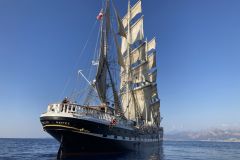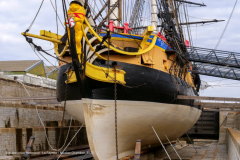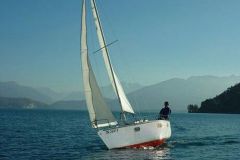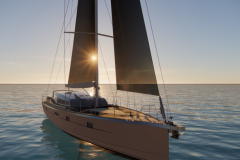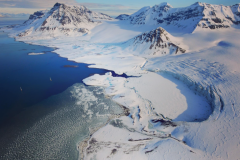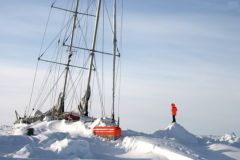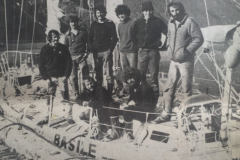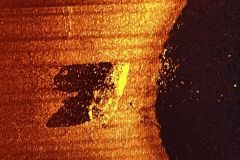For 15 years now, the Tara Expeditions Foundation has been studying the ocean in order to better preserve it from climate change. An essential mission, but one that requires a lot of funds, and mobilising public opinion, politicians and financiers is difficult in the marine research sector. "Today, of the donations made to associations, only 3% goes to the environment. A lesser cause compared to medicine or humanitarian work in the collective consciousness." explains Elodie Bernollin, director of communication of the Tara Foundation.
"Bringing attention to an environmental message"
"We're willing to innovate to bring an environmental message to public attention. With this operation, we wanted to show that if nobody saves the ocean, it will have to save itself." continues Elodie.
As soon as said, as soon as done... In collaboration with the hydrogenerator company.. Save Marine - who wished to support the Tara Foundation - and with the complicity of the FF (Fred & Farid) Los Angeles agency, the Tara Foundation imagined a device called "Ocean Miner", tested for a month in Brittany, in the Morbihan region, at the tip of Quiberon.
A hydro turbine was immersed in the ocean floor where the ocean currents and tides are strongest. Powered by currents, the turbine generated electricity, while being connected to a computer specialized in mining, i.e. the production of Bitcoins, placed in a mirrored box so as not to distort the landscape. The creation of this cryptomony via mining is a computer process of recording transactions in the public register of transactions (carried out with what is called the Blockchain). Each registered transaction generates a fraction of Bitcoin in return in favour of the owner of the computer. This digital currency is then converted into Euros and can therefore be directly reinvested in ocean research.

"When you put a computer at the disposal of the blockchain, you get paid in Bitcoins. After a month, we were able to get back 200 euros ($250)! We knew we weren't going to earn billions in Bitcoins, but on the other hand, it was a real innovation, which corresponded to our way of doing things. This operation also enabled us to show that ocean research is difficult to finance - we need to mobilise as many people as possible. Even if there is a real burst of interest, especially since COP 21" synthesizes Elodie.
"Ocean Miner is a symbolic contribution. Our goal is not to develop a hydroelectric power plant, which would allow us to harvest bitcoin. Our mission is to organize expeditions and to study the impact of pollution and global warming on the ocean." adds Elodie.
For the anecdote, to finance an expedition with Ocean Minner, it would have taken more than 100 years! "Today, 25% of the Tara Pacific expedition's budget is not covered (NDRL: An expedition requires a budget of between 5 and 8 million euros). Faced with the urgency of the situation (NDRL: impact of pollution and global warming on the ocean) we need to mobilize as many people as possible. With this innovative experiment, this is what we are trying to do" concludes Elodie Bernollin.

Coral reefs, the next goal of the Tara Foundation
The schooner Tara is today in Shanghai and will then set sail for Japan at the beginning of May, before reaching Hawaii at the beginning of June to study the coral reefs. The crossing of the Pacific will also be the occasion to analyse the pollution of the large plastic gyre. The boat will then reach the Atlantic coast at the beginning of August, before returning to Lorient on 27th October 2018.
What's the next step? "The cumulative effect of warming and pollution on coral reefs. It is a lethal cocktail..."

 /
/ 



